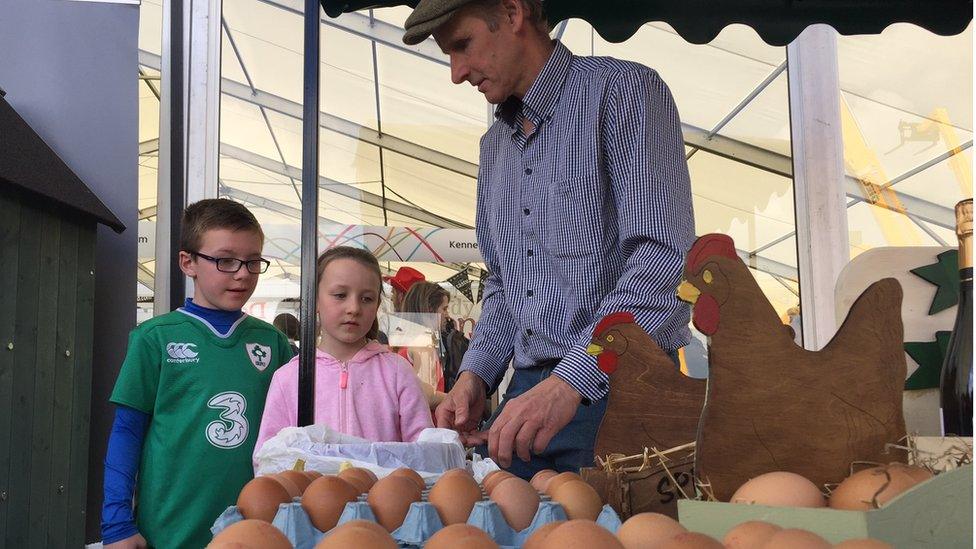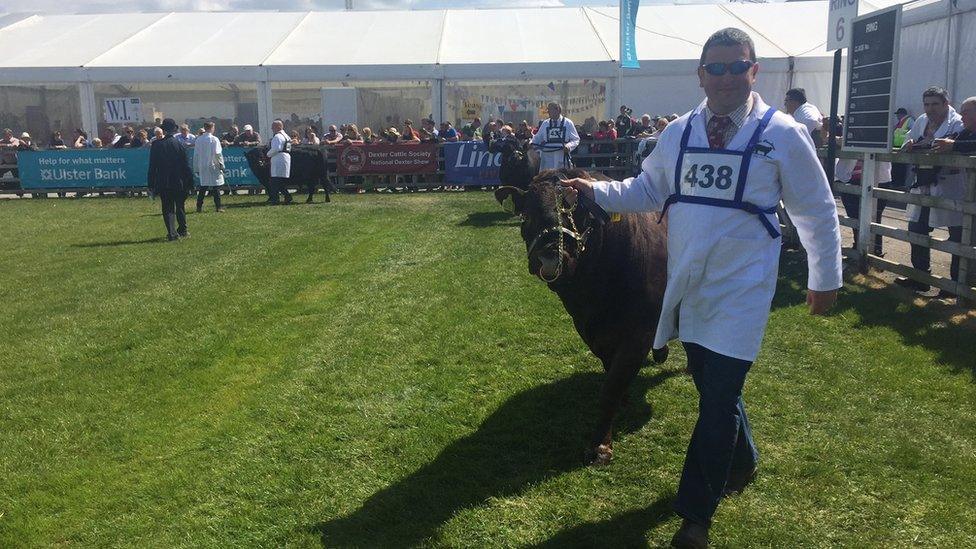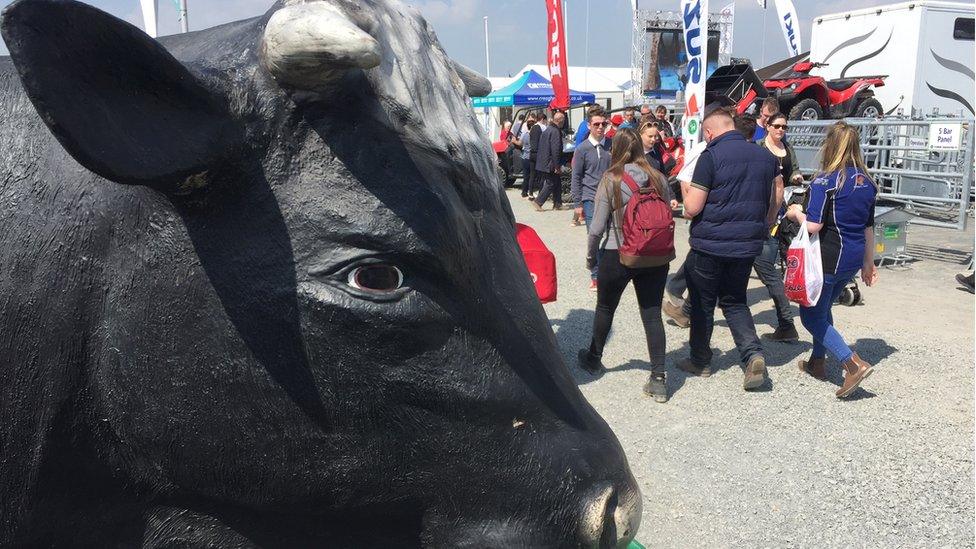Northern Ireland agriculture faces 'once in a lifetime' chance
- Published

Ulster Famers Union chief Barclay Bell said farmers must have the same amount of financial support post-Brexit
There is a "once in a lifetime opportunity" to shape the future of agriculture in Northern Ireland, industry leaders have been told.
But the "clock is ticking" and the industry needs to get on with the job.
Ulster Farmers Union (UFU) president Barclay Bell was addressing a breakfast event at Balmoral Show.
He said the priority was maintaining post-Brexit the level and share of financial support that currently flows to Northern Ireland from the EU.

Industry leaders were speaking at a breakfast event at the Balmoral Show
Mr Bell told the event, organised by the Department of Agriculture, Environment and Rural Affairs (DAERA), that the UK pot of money should be targeted at "those who take the financial risks of primary food production".
The ideas form part of the UFU's Brexit discussion document launched on Thursday.
Speaking at the same event, the chairman of the Northern Ireland Food & Drink Federation said there was a danger of "paralysis by analysis" in response to Brexit.
Declan Billington said there needed to be a "sales plan" for Northern Ireland produce.

Attendees were told that the agri-sector should avoid "paralysis by analysis" when it comes to Brexit
He said the focus should be on increasing sales to the market in Great Britain while opening up new markets for cuts of meat and chicken that people in Northern Ireland do not eat.
Such efficient use of the animal carcass could drive expansion, he said.
A leading environmentalist told the gathering that farmers were already providing public goods, such as access to the countryside and biodiversity, and should be supported for that.
Patrick Casement, chair of Northern Ireland Environment Link, said conservationists were concerned that a new agricultural policy could deliver intensification in lowland areas and the abandonment of uplands, which could no longer be farmed economically.